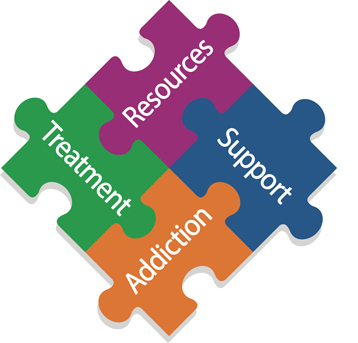Evidence-based Cognitive Behavioral Therapy (CBT) helps individuals develop more positive thought patterns.
Key Kind Of Dependency Therapy: Navigating Alcoholism Recovery With Evidence-Based Practices
In the realm of alcohol dependency recuperation, the assimilation of Cognitive-Behavioral Treatments (CBT) and Medication-Assisted Therapy (FLOOR COVERING) notes an essential stride towards effectiveness and patient-centered treatment. When these evidence-based methods are supplemented with holistic techniques, such as mindfulness and nutritional assistance, they form a durable structure for treatment.

Comprehending Cognitive-Behavioral Treatments in Alcohol Addiction Recovery
As alcohol dependency recovery advances, cognitive-behavioral therapies (CBT) have arised as a keystone in reliable therapy approaches. addiction treatment center. Treatment focuses on determining these negative patterns and teaching people exactly how to challenge and replace them with more useful thinking. The adaptable nature of CBT allows it to be customized to the special requirements of each individual, enhancing its performance in the realm of alcohol healing.

The Duty of Medication-Assisted Treatment in Taking Care Of Withdrawal and Food Cravings
Medication-assisted treatment (MAT) plays a critical function in the Learn More management of withdrawal signs and symptoms and cravings in individuals recouping from alcohol dependency. fentanyl addiction treatment. Such assimilation sustains the retention in treatment programs and contributes substantially to preventing relapse, noting Floor covering as a foundation of Source effective alcohol dependency treatment.

Integrating All Natural Methods With Standard Therapies for Comprehensive Treatment
While medication-assisted treatment offers a foundational strategy to alcohol recuperation, integrating all natural approaches with typical treatments offers a much more extensive care important link version. This synthesis allows the treatment of the entire individual, dealing with not just the physical elements of addiction but also the psychological, psychological, and spiritual dimensions. Techniques such as mindfulness, yoga exercise, and acupuncture complement cognitive-behavioral therapy (CBT) and team sessions, supporting stress decrease and emotional law. Nourishment and exercise programs better improve physical health and strength. By integrating these varied methods, therapy programs can tailor treatments to private needs, promoting a much more lasting recuperation. This integrated approach underscores the relevance of a multifaceted strategy in the effective therapy of alcoholism.
Verdict
In conclusion, effective alcohol addiction recuperation leverages a mix of evidence-based practices. Cognitive-Behavioral Therapies reframe adverse thinking, while Medication-Assisted Therapy tackles the physical obstacles of withdrawal and yearnings.